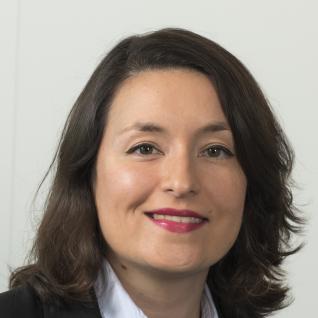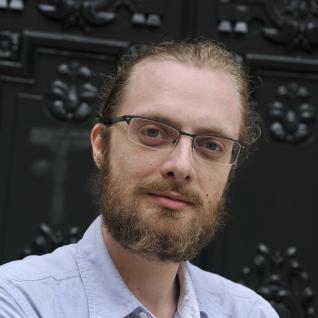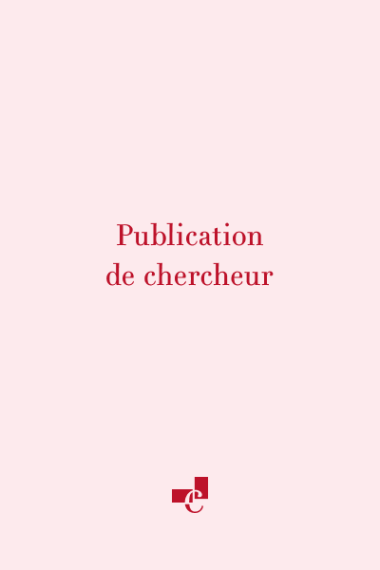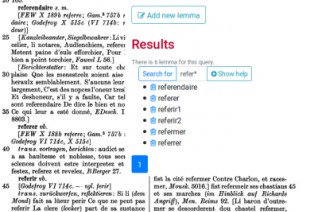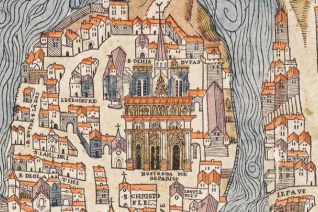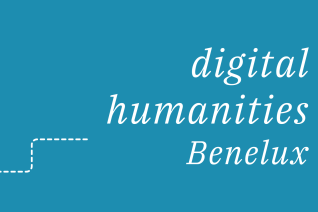Master of ‘Digital Humanities’
DataScience for Human and Social Sciences
The Master of ‘Digital Humanities’ is a research degree awarded by Université PSL. It delivers education in using and analysing data from the human and social sciences. The curriculum is designed for students with a bachelor's degree who wish to develop dual thematic skills in the humanities, in the major of their choice (history, philology, literature, sociology, etc.), and data science.
Presentation
This master's degree is the result of a joint effort between the École nationale des chartes - PSL, the École Normale Supérieure - PSL, and the École Pratique des Hautes Etudes - PSL. It is affiliated with the Translitteræ graduate programme.
Présentation du master « Humanités numériques »
An Innovative Curriculum
The Master's programme combines a demanding two-pronged education in the social sciences and humanities, building on the curricula of the four partner institutions. It focuses on the issues, methods, and tools used in research and data analysis (algorithms, quantitative methods, modelling, programming, and artificial intelligence). As such, it is consistent with the computational shift and the exploitation of data from the human and social sciences. At the end of the course, students will have a unique dual skill set, giving them the autonomy to address a thematic discipline using computational approaches.
An innovative curriculum focused on:
- Joint classes in machine learning, data science and computational methods for research in the social sciences and humanities in M1 and M2;
- Specialisation in methods specific to each student's field (e.g. natural language processing (NLP), digital philology, network analysis, etc.) in M2;
- Research seminars and professionalisation courses in M1 and M2;
- A research project and dissertation: Students will conduct a data structuring and analysis project during their first year of study. In the second year, they will have to demonstrate their dual expertise in the human sciences and computational methods through a research project.
Although there are no prerequisites in mathematics or programming, this highly demanding course is designed for students who can demonstrate true interest in these disciplines.
Parcours de spécialisation
Le master offre la possibilité de se spécialiser dans différentes thématiques, en fonction du projet de recherche et des objectifs de formation de chaque étudiant. Ces parcours couvrent les grands domaines des humanités et s’appuient sur un ensemble de cours thématiques à sélectionner selon la spécialisation choisie. Ces parcours ne sont pas contraignants.
Documents utiles
Useful documents
Master of Digital Humanities brochure
TéléchargerRèglement des études du master HN - 2025/2026
TéléchargerMaquette et syllabus du master HN - 2025/2026
Télécharger
Teaching Team
Administrative Contact
etudes @ chartes.psl.eu
Scolarité
Curriculum
Master 1
In the first year, students attend a core course in digital humanities, as well as subject-specific courses (e.g. contemporary history, philology, sociology, urban geography, etc.).
- 20 ECTS in humanities and social sciences at a partner institution;
- 40 ECTS in digital humanities, including(see syllabus for an exhaustive list): introduction to digital humanities; fundamentals of computer science; data modelling and structuring (XML, SQL); quantitative methods; mathematics; Python programming; methodology; master's research seminar.
The first year of studies focuses on building a substantial thematic and computational background. The programme involves a mini-research dissertation combining the student's specialisation and computational methods.
A pre-entry week is organised for an overview of current research in digital humanities and technical adjustments (computer installations, etc.).
A refresher course in mathematics is available for students who need it. A significant part of the first year focuses on the acquisition or refresher courses in the fundamentals of computer science and data science.
Master 2
The second year of the Master's programme consists of a core curriculum, expanding on the foundations covered in the first year (algorithms, data modelling and structuring, data exploitation and mining, quantitative methods), with optional courses and seminars to help students specialise in methods specific to their field of study. Students also take several research seminars and an additional professionalisation course. Second-year students can present their work to first-year students at one of the master's seminars.
Half of the credits for the second year are awarded for writing and defending a research dissertation, supervised by a professor in the student's major and by a tutor for the digital aspects. The dissertation should use digital technologies (structured data, algorithms, quantitative methods, etc.) to support the research process.
Overall:
- 18 ECTS dedicated to the common curriculum in Python programming, data science, artificial intelligence and quantitative methods;
- 10 ECTS for specialisation courses (image processing, NLP, computational philology, etc.);
- 12 ECTS dedicated to external seminars (opening seminar and research supervisor's seminar);
- 20 ECTS for the research dissertation.
Thematic and Optional Courses at PSL
Non-exhaustive list of courses and seminars open to master's students
External courses and seminars are selected exclusively from partner institutions, subject to the relevant teacher's agreement and the admissions panel's approval.
- École normale supérieure - PSL: See the seminars on offer in each ENC department
- École pratique des hautes études - PSL: See the list of open-access conferences from the humanities and social sciences departments, subject to the agreement of the teacher concerned.
- École nationale des chartes - PSL: See the École des Chartes professor's seminars
- École des hautes études en sciences sociales:See the list of courses
- PSL week
Prospects
With a strong focus on research, this Master's programme is designed first and foremost to prepare students for doctoral studies. The aim of the programme is to equip them with both the skills in their disciplines and digital methods required to carry out their research independently.
The targeted career paths are research and higher education (researchers, research engineers) and human and social sciences data expertise.
Admissions
Admission
Application
Master 1
You can apply on the national master's portal from 26 February to 24 March 2024.
Candidates selected by the teaching committee will be invited to an interview.
- Admission results: 30 April 2024
Only eligible candidates will be contacted.
- Interviews (if eligible): week of 13 May 2024
- Admission results: 4 June 2024
Master 2
You can apply on the PSL application platform from 26 February to 24 March 2024.
Candidates selected by the teaching committee will be invited to an interview.
- Admission results: 30 April 2024
Only eligible candidates will be contacted.
- Interviews (if eligible): week of 13 May 2024
- Admission results: 4 June 2024
International applicants
International applicants (excluding nationals of the European Economic Area, Andorra, Switzerland or Monaco) whose country of residence is covered by the Études en France scheme must apply for the first (and the second) year of the Master's programme on the PSL application platform.
Partner Courses
For the PSL Sustainability Science master's programme, see the relevant calendar on the PSL website.
Course Entry Requirements
The Master's programme is designed for students with a bachelor's degree in the following fields:
- Humanities
- History
- Philology
- Language sciences
- Mathematics and computer science applied to the humanities and social sciences
- Philosophy
- Human sciences, anthropology, ethnology
Students are expected to have an affinity for digital tools, but admission to the first year does not require prior training in digital humanities. Motivated students with an M1 and a basic knowledge of digital humanities can enter the second year.
Registration fees
The Digital Humanities Master's is a research degree, with an initial registration fee of €250 (+ CVEC €103), and a gap year fee of €164.
Registration fees for continuing education are €3,000 (M1) and €5,000 (M2).
Your status falls under continuing education:
- If you have been granted funding for the registration fee.
- If you are an employee or on individual training leave, looking for work or retraining.
The course is open to Erasmus-Socrates students.
- Number of semesters: 4
- Capacity: 15 (M1), 15 (M2)
Distance Learning and Apprenticeships
The M2 is open to apprenticeship training, with three days per week in a company or institution and two days at the school for the common core courses in data science for the humanities and social sciences (Thursday and Friday).
For any information on fees and the organization of apprenticeship training, please contact the continuing education office of the École des chartes – PSL.
The master’s program is not offered as distance learning.
Admission results (2024 session)
The results will be published on 4 June 2024.
Résultats d’admission au master « Humanités numériques » (2025-2026)
Télécharger
Partnerships and Double Degrees
Double degree with the University of Pisa
The double degree was created under a collaboration agreement between the École nationale des chartes -PSL and the University of Pisa.
FFor the past twenty years, the University of Pisa has offered a master's degree in ‘Informatica Umanistica’, with four tracks overlapping with the École’s ‘Digital Humanities’ master's degree.
PSL Master of Sustainability Science
The Digital Humanities master's is a partner of the PSL Sustainability Science master's programme (information and registration on the PSL website).
International
The course is open to Erasmus-Socrates students. Contact the international relations department of the École des Chartes and PSL to learn more about eligible institutions and partners.
Contact
Latest publications from the teaching team
Whose Pen Wrote the Map? Battling Over the Armenian Medieval Text Ashkharhatsuyts with Stylometry
Researcher publication
Communication dans un congrès
- Publishing date: 2025
From questions to insights: a reproducible question-answering pipeline for historiographical corpus exploration
Researcher publication
Communication dans un congrès
- Publishing date: 2025
Greening your database of literary works: How to avoid reinventing vocabularies, in favor of sustainable, reusable models
Researcher publication
Communication dans un congrès
- Publishing date: 2025










